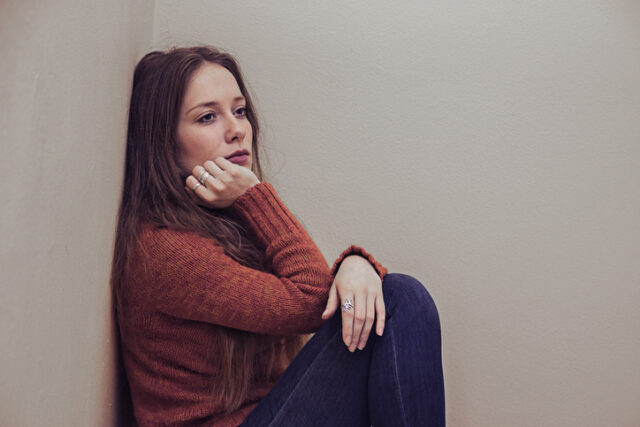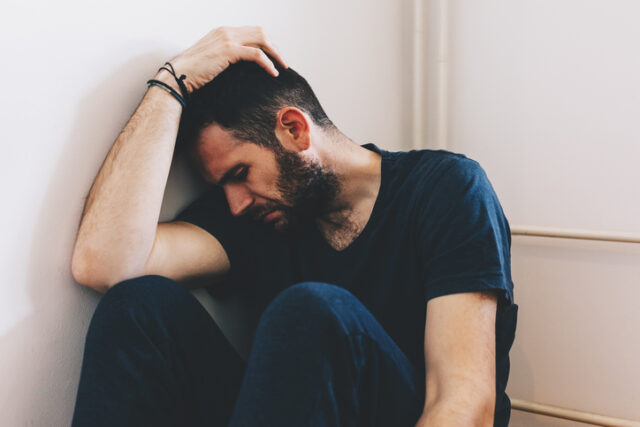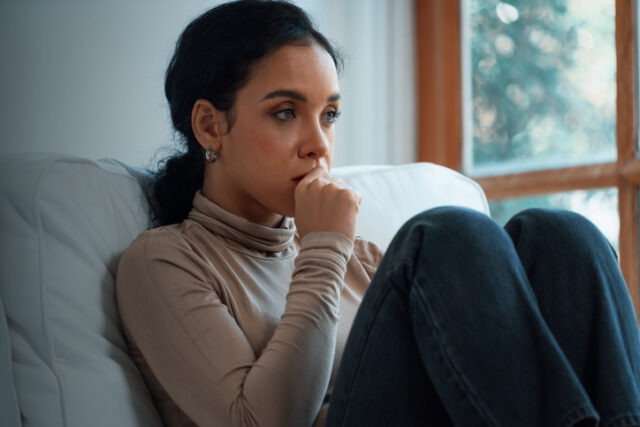Your relationship with your brothers and sisters is supposed to be one of support and love.

However, not all siblings have that dynamic — and if you were bullied, whether physically or emotionally, by your own family members growing up, the effects can stick with you even after you’re all grown up. Unlike school bullies, sibling bullying happens at home — a place where you’re supposed to feel safe. If you experienced this growing up, here are just a few of the lasting impacts you might still be dealing with today.
1. Your self-esteem isn’t very high.

If your sibling spent years teasing, criticising, or belittling you, it can really eat away at your confidence. Those harsh words you heard growing up might still echo in your head, even as an adult. You might second-guess yourself more than you should, or feel like you’re not quite good enough. These negative thoughts can stay with you for a long time, making it harder to truly believe in your own worth.
2. You really struggle to trust anyone.

When someone so close to you — like a sibling — uses that closeness to hurt you, it can make it tough to trust anyone. You might find yourself keeping people at a distance, worried they’ll do the same thing your sibling did. Your constant need to protect yourself can get in the way of forming deeper, more meaningful connections with people. Even when people prove themselves trustworthy, the anxiety still lingers.
3. You downplay your own feelings.

If your sibling always brushed off or mocked your emotions growing up, it can make you dismiss your own feelings as an adult. You might struggle to take your emotions seriously, often brushing off your pain or discomfort like it doesn’t matter. This can make it hard to recognise when something’s really bothering you. Over time, it becomes harder to process your emotions and figure out what’s truly important.
4. You feel the need to prove yourself.

Being constantly put down by a sibling can leave you feeling like you have to prove your worth, no matter what. You might find yourself overworking, trying to be perfect, or constantly looking for approval from other people. The drive to prove yourself often comes from a place of fear — the fear that if you stop, those old criticisms will come rushing back. Even when you achieve something great, it might never feel like enough.
5. You’re terrified of conflict.

If sibling bullying meant constant arguments or emotional pain, you might have learned to avoid conflict entirely. As an adult, you may go out of your way to keep the peace, even if it means suppressing your own feelings. It can stop you from standing up for yourself when you need to. The fear of causing a fight might leave you feeling like you’re always walking on eggshells.
6. Setting boundaries feels nearly impossible.

Siblings who ignored your boundaries might have made you feel like you didn’t even have the right to set them. Now, as an adult, you might find it hard to establish healthy boundaries with people. You might say “yes” when you want to say “no,” or allow people to take more of your time and energy than they should. It’s hard to break this pattern when you weren’t taught how to stand up for your limits growing up.
7. You experience anxiety in close relationships.

If your sibling, someone you were supposed to trust and feel safe with, caused you emotional pain, it’s no surprise that anxiety can follow you into adulthood. You might feel like people will hurt you, misunderstand you, or leave you. The fear of being abandoned or rejected can make you overthink everything, constantly needing reassurance. It’s tough to fully relax in relationships when the wounds of the past are still fresh.
8. You have a hard time celebrating your achievements.

If your sibling was jealous or competitive with you, you might find it hard to fully enjoy your own successes. You might downplay your wins, worry about how other people will react, or feel like you don’t deserve the praise. The hesitation to celebrate yourself comes from years of being told your achievements weren’t good enough. It can take time to get comfortable with owning your successes and feeling proud of yourself.
9. You’re your own worst critic.

If your sibling was constantly critical, you might have developed an internal voice that’s just as harsh. You might pick apart your appearance, your decisions, or your actions, finding flaws everywhere you look. All that self-criticism can feel relentless, making it hard to feel happy with who you are. It’s exhausting trying to meet unrealistic expectations, especially when that inner critic won’t let up.
10. You feel like you always have to be on guard.

Growing up with a sibling who bullied you can make you feel like you’re always under attack, even as an adult. You might find yourself constantly scanning for emotional “threats,” waiting for something to go wrong. Your hypervigilance can be draining, making it hard to relax and trust that things are okay. It’s a survival instinct you learned growing up, but it’s hard to shake off when you’re always expecting the worst.
11. You feel guilty when you stand up for yourself.

If standing up to your sibling led to more bullying or got you labelled as “difficult,” you might carry that guilt into adulthood. As an adult, you may feel wrong or selfish for asserting your needs, even when it’s healthy to do so. You might worry about backlash, even though standing up for yourself is a completely reasonable thing to do. It’s important to learn that asserting yourself isn’t something to feel guilty about — it’s necessary for your own well-being.
12. You don’t feel safe in your own home.

If home was a place of bullying instead of safety, it might be hard to ever truly feel at ease in your own space. You may feel anxious or uneasy even when there’s no immediate threat, because your idea of “home” was never a haven. The place where you were supposed to feel protected has instead become a source of tension. Rebuilding that sense of comfort in your own home is key, though it can take time.
13. You find it hard to believe compliments.

When you’ve spent so much time being put down, it’s hard to trust when people offer genuine praise. You might assume people are just being polite, or you might dismiss compliments entirely. Accepting compliments feels unnatural when you’ve grown used to hearing negativity. But being able to truly believe that people see the good in you is an important step towards healing.
14. You carry resentment or unresolved anger.

Even if you’ve worked hard to move on, the anger or resentment from being bullied by a sibling can stick around. You might still feel hurt by what happened, wishing for an apology or acknowledgement that may never come. Your unresolved anger can pop up in unexpected places, affecting your relationships today. Working through these feelings, whether with help or on your own, can give you the space you need to finally let go of the past.




